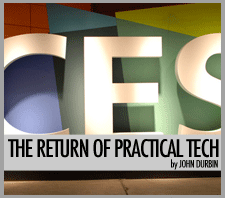Influencers?
Posted by Katie Cook | November 26, 2008
Influencers and Word of Mouth are hot topics among marketers, planners and researchers – and for good reason. Influencers can affect anything from consumers’ brand preferences to their spending habits through just a single conversation. Whether it’s as small as where to get your hair cut or as big as what firm to trust with your retirement money, conversations are constantly happening, and knowing who the influencers are and what they think about the brands in the category is imperative.
So which influencer is the right influencer? There are several schools of thought on this. In his book The Tipping Point, Malcom Gladwell introduced us to a cultural influencer, the Maven. Mavens are defined by their collection of knowledge on a number of products, prices and places, so they are often first to pick up new or emerging trends. There are also media influencers, who affect the way we think about brands and products through the press. The influencer list is long, but includes activists, trendsetters, connectors and salesmen. While each definition certainly may have some grounding, what we should all be thinking about is a conversational influencer.
Denuo defines conversational influencers on two key metrics: a large amount of charisma and a high number of social connections. In our research, this group generally accounts for about 10 percent of any given population.
For charisma, think of it this way: if there are two people providing equally positive reviews about two different auto repair shops, which shop will someone choose when they need their transmission fixed? Well, let’s say one of those people is a likeable guy – he is more fun to hang out with at a party, he’s friendlier, he laughs more. On the other hand, the second guy is generally more introverted and quiet, or maybe not as likable. In most cases, people will be drawn to the more charismatic person, and therefore that person’s recommendation.
Now let’s say there are two equally charismatic people recommending two auto repair shops. The first guy, however, talks to 60 people on a weekly basis, while the other guy only talks to 10. Which guy has more potential to influence a large number of people? Undoubtedly, the person with more social connections.
Notice that I’m not including category expertise in the definition. If you’re soliciting a recommendation for a place to get your transmission fixed, once you friend gives you one, you’re next question isn’t, “What do you know about fixing transmissions?” While experts definitely have some influence in some categories, recommendations from a friend have been more powerful than an expert recommendation in most cases we’ve seen at Denuo.
Also not included in the definition is likelihood to recommend brands. Going back to the charisma piece, if a guy with little or no charisma recommended a brand, his opinion is not as valuable to you as someone who has natural charisma. Interestingly, our data has found that conversational influencers index higher on likelihood to recommend a brand for 40 of the 53 brands tested to date.
So while there may be a fair number of influencer definitions to choose from, given their likelihood to recommend brands, coupled with their large number of social connections, conversational influencers represent a huge opportunity for marketers. Winning them over will undoubtedly make them brand ambassadors.
Related Posts
Leave a Comment
RSS feed for comments on this post · TrackBack URI


